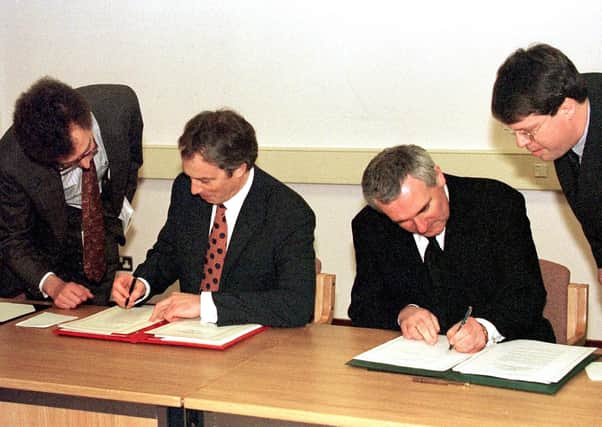The UK government should read John Oliver on how to make Northern Ireland work


The evidence as revealed by John Whyte, Richard Rose, Graham Gudgin, and others tells a different story.
The so-called ‘civil rights’ movement exaggerated allegations of discrimination to force the Labour government to undermine the devolved administration of Terence O’Neill.
Advertisement
Hide AdAdvertisement
Hide AdIn fact O’Neill was desperate to reform local government — the main source of the alleged discrimination — and the Northern Ireland Civil Service (NICS) employed senior officials who were well able to deliver the changes that their prime minister wanted.


One of them was Dr John Oliver. He was appointed in 1964 as permanent secretary at the Ministry of Development, created by O’Neill to modernise the planning system and reform local government. From this position he moved incrementally against a background of rising sectarian tensions.
Dr Oliver made a huge personal contribution to the McCrory report which underpinned the radical restructuring of local government. He oversaw reform in the local government franchise, the creation of the Londonderry Development Commission, the appointment of a local government ombudsman, and the establishment of the Housing Executive.
His peers described him as one of the outstanding civil servants of his time.
Advertisement
Hide AdAdvertisement
Hide AdHe continued to think about the problems of governing Northern Ireland after retiring in 1976. He published his memoirs, Working at Stormont (1978). In 1994, he published a radical essay on the impact of the British government’s ambivalence towards Ulster’s position within the UK [“On Saying Goodbye to Unionism and Nationalism” in Aspects of Ulster, 1994].
He saw this as a source of instability, particularly since the Irish state claimed jurisdiction over the entire Ireland. Britain had not only failed to refute this “outrageous” claim but also indicated a willingness to provide for Irish unification if a majority so wished.
Looking ahead, he proposed that “...the best single step in the whole situation would be if HM government were to legislate for Northern Ireland to be and to remain for say 50 years a part of the United Kingdom state with no ifs and buts, no quibbling”.
At the same time, the party political system would be reformed with new parties, avoiding the terms ‘unionist’ and ‘nationalist’.
Advertisement
Hide AdAdvertisement
Hide AdAimed as it was at appeasing violent republicanism, the Belfast Agreement in 1998 moved the framework for our politics in the opposite direction. But it is now becoming clear that the Agreement has run its course, has failed to deliver stability and good governance, and cannot survive much longer.
As Ben Habib pointed out in his letter to the editor of June 15 (see link below), the government’s Protocol Bill will not be enacted or implemented. Its purpose is to kick the can down the road until after the marching season.
Therefore the DUP cannot in good faith go back into government.
Therefore the Belfast agreement in its current form is finished. The protocol has undermined the integrity of the Union, the principle of cross-community consent to major decisions, and the parity of the East/West dimension. Mr Coveney’s thuggish pronouncements have destroyed such trust as unionists may once have had in Dublin.
Advertisement
Hide AdAdvertisement
Hide AdWhen the government finally admits that it needs a new policy framework, it could do worse than take the advice of Dr John Oliver, a local official who applied his considerable talents to making Northern Ireland work and knew what he was talking about.
• Dr William Beattie Smith, a former direcor of NI Civil Service, is co-editor of The Idea of the Union
Advertisement
Hide AdAdvertisement
Hide Ad• Ruth Dudley Edwards June 14: Boris has flaws but I still hope he’ll unlock protocol
• Peter Robinson June 14: DUP should stay out of Stormont until protocol bill is fully enacted
• Owen Polley June 13: Billy Bingham should have had a knighthood
• Ben Lowry June 11: BBC NI is downgrading its Twelfth output but pretending otherwise